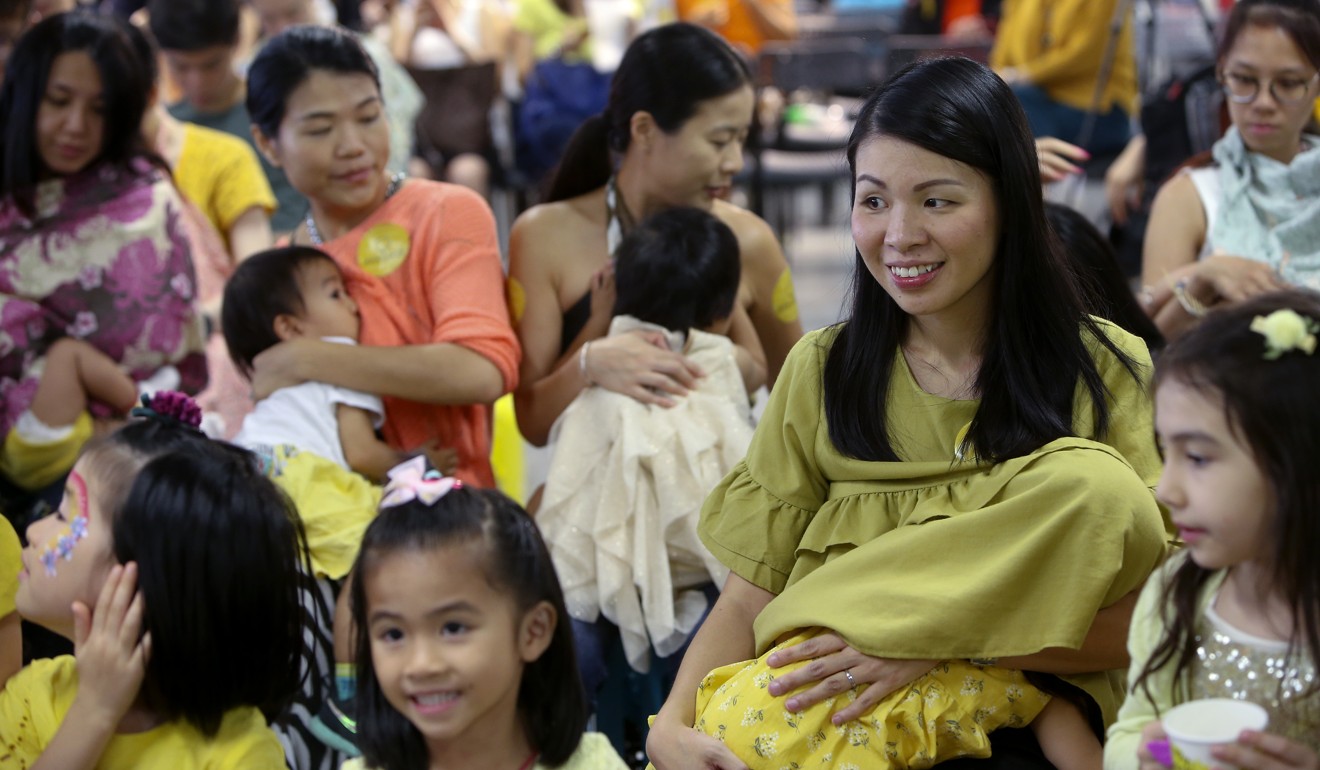
Breastfeeding reduces child obesity risk by up to 25 per cent, WHO finds
- The data came from nearly 30,000 children monitored for the WHO’s Childhood Obesity Surveillance Initiative in 16 European countries
Breastfeeding can cut the chances of a child becoming obese by up to 25 per cent, according to a major study in 16 countries.
World Health Organisation (WHO) experts who led the Europe-wide research are calling for more women to breastfeed, as well as curbs on milk powder marketing, which senior author Joao Breda said misled women into thinking breast milk was not necessarily better.

“We need to see more measures to encourage breastfeeding, like properly paid maternity leave,” said Breda from the WHO European Office for Prevention and Control of Noncommunicable Diseases.
“We need less inappropriate marketing of formula milk, which may lead some mothers to believe it is as good for babies as breast milk.”
The research found more than 77 per cent of children across Europe were breastfed, but rates varied widely. In Ireland, 46 per cent of mothers had never breastfed and in France, that was nearly 34 per cent. WHO recommends women should exclusively breastfeed for six months, if they can.
The data came from nearly 30,000 children monitored as part of the WHO Childhood Obesity Surveillance Initiative (Cosi). Launched in 2007, Cosi is continuously being updated and now receives data from about 40 countries on children aged six to nine – though not the UK, which measures children in school at around four and 11.
UK breastfeeding rates are low. Although 81 per cent of mothers in Britain begin to breastfeed, by six weeks that has fallen to 24 per cent in England, 17 per cent in Wales and 13 per cent in Northern Ireland according to data from 2010. By six months, only 1 per cent are exclusively breastfeeding, although 34 per cent are still doing some breastfeeding.
Breastfeeding has a really strong protective effect. The evidence is there. The benefit is outstanding so we should be telling people
In absolute terms, 16.8 per cent of children who were never breastfed were obese, compared with 13.2 per cent who had been breastfed at some time and 9.3 per cent of children breastfed for six months or more.
After adjustment for demographics, children who were never breastfed were 22 per cent more likely to be obese and those breastfed for less than six months were 12 per cent more likely to be obese than children breastfed for six months. The protection for children who were exclusively breastfed for six months was even higher, at 25 per cent.
WHO’s paper, presented at the European Congress on Obesity in Glasgow and published in the journal Obesity Facts, says there are a number of reasons breastfeeding would protect children from obesity. Exclusive breastfeeding delays the introduction of solid food, which may be high in energy. There is also some evidence babies fed formula have higher insulin levels in their blood which can stimulate fat deposition.
“Breastfeeding has a really strong protective effect. The evidence is there. The benefit is outstanding so we should be telling people,” Breda said.
Kate Brintworth, head of maternity transformation at the royal College of Midwives, welcomed the study.

“We know that in the postnatal period many women are saying they don’t feel midwives and midwifery support workers have the time to give them the support that would enable many more to continue breastfeeding, she said. “However, it is important that we respect a woman’s infant feeding choices, and that if a woman chooses not to breastfeed, for whatever reason, she will need to be supported in that choice.”
Sue Ashmore, director of the Unicef UK’s Baby Friendly initiative, said: “Human milk – breast milk – is specifically designed for human babies. Not only does it act as baby’s first vaccine, protecting against infections, but it also affects long-term health, including acting as the first defence against the epidemic of obesity.”

